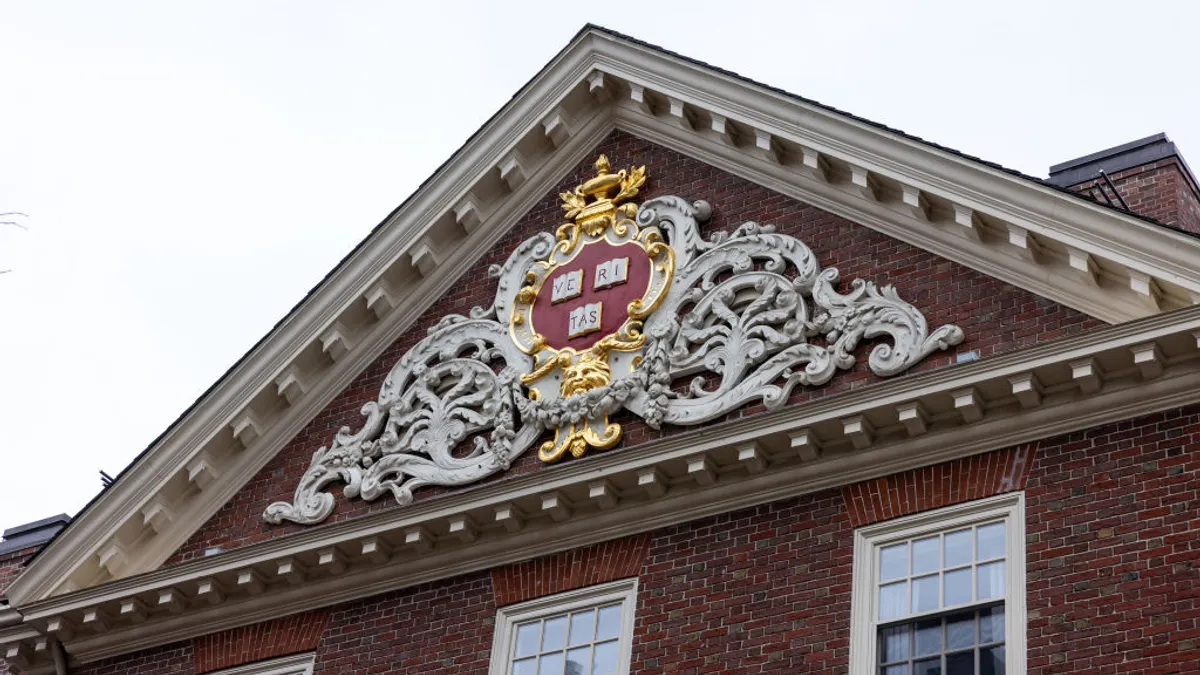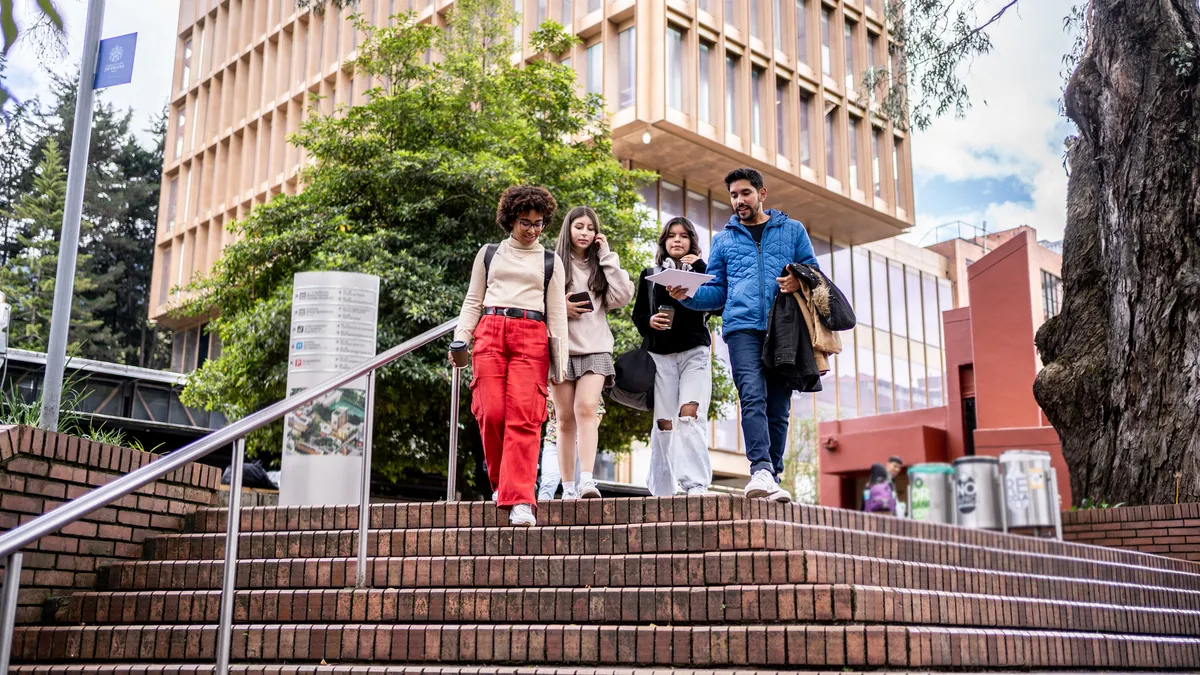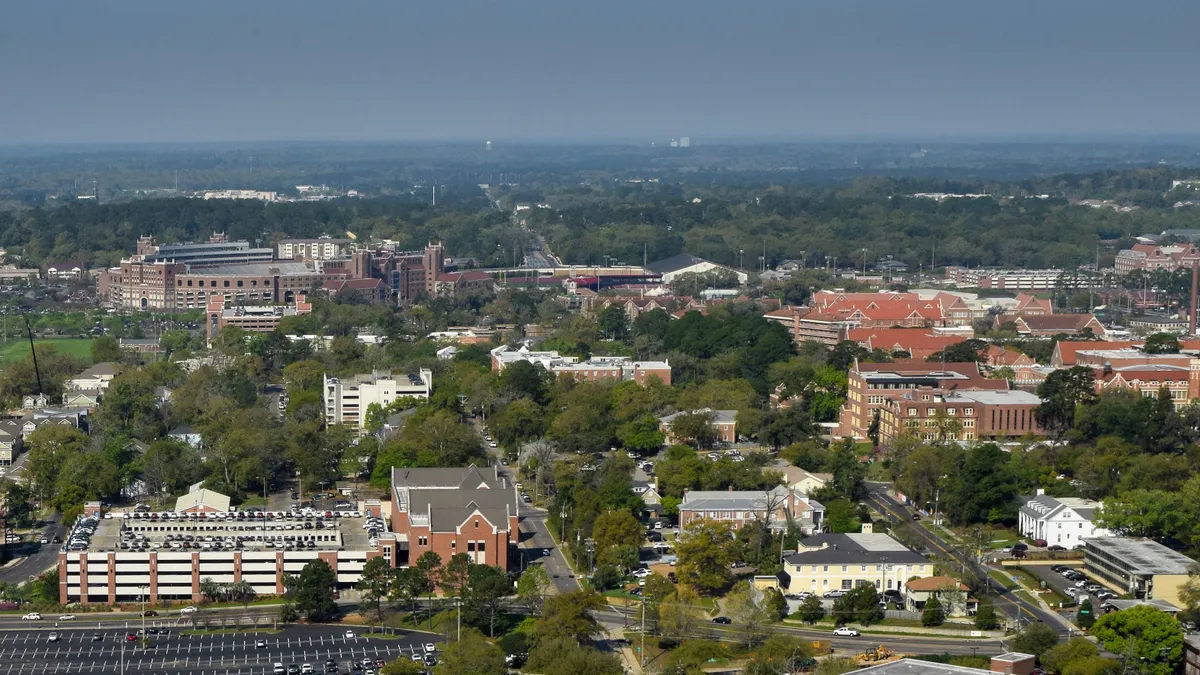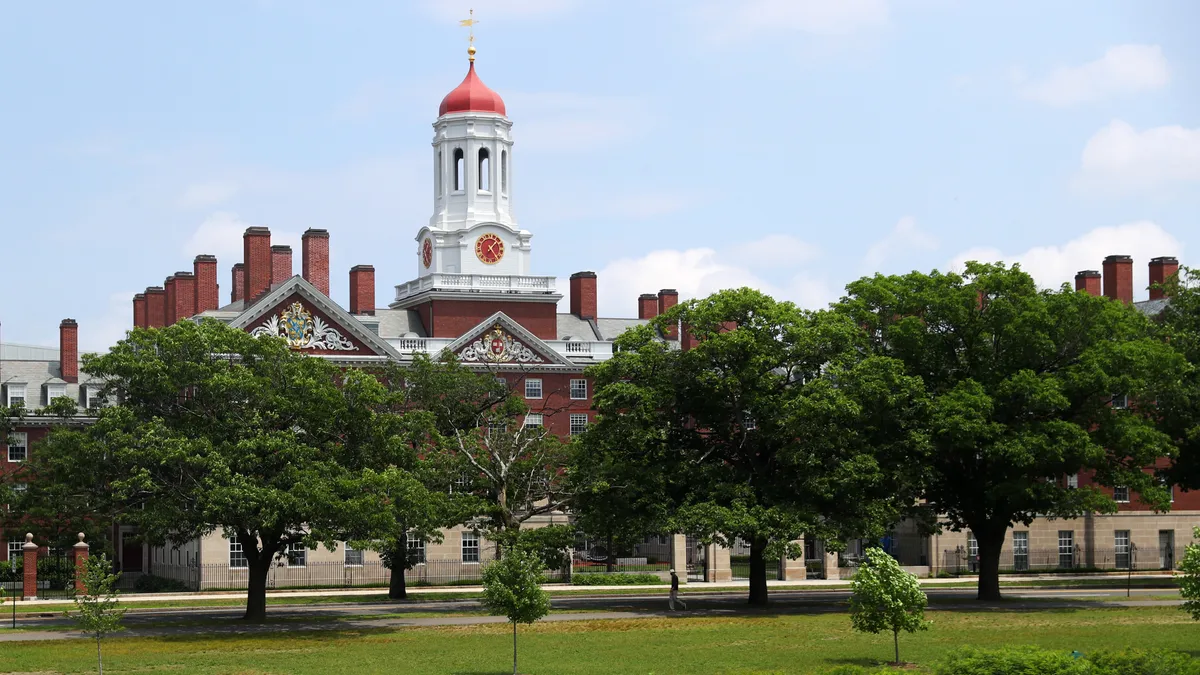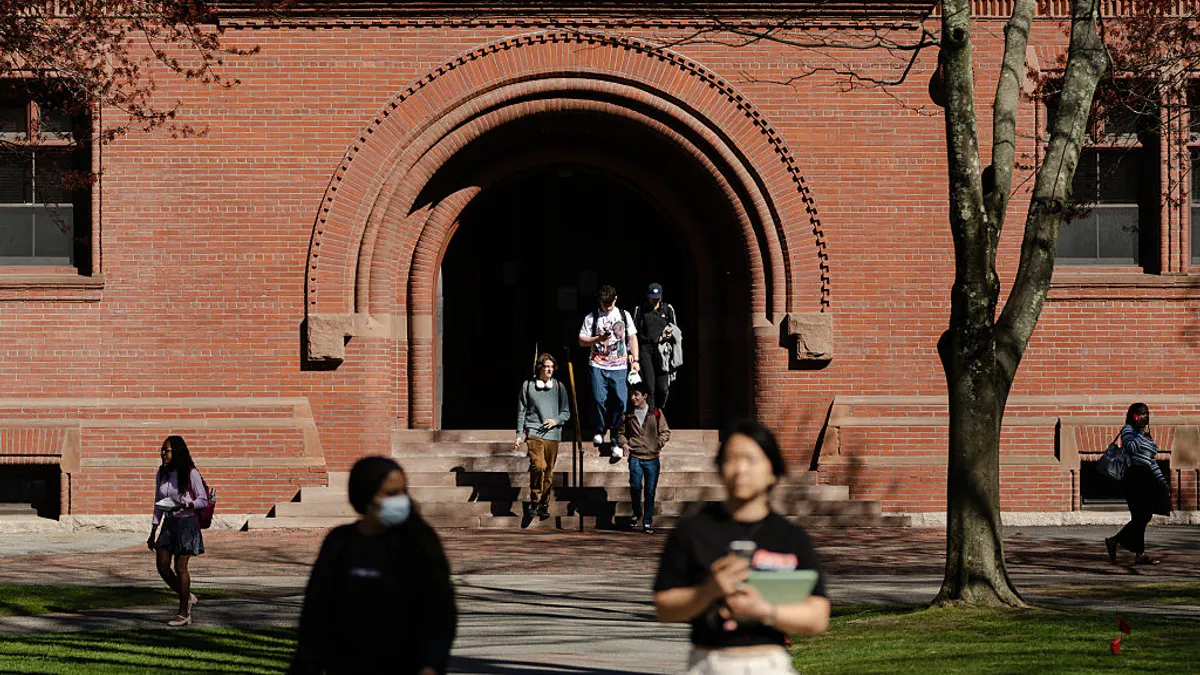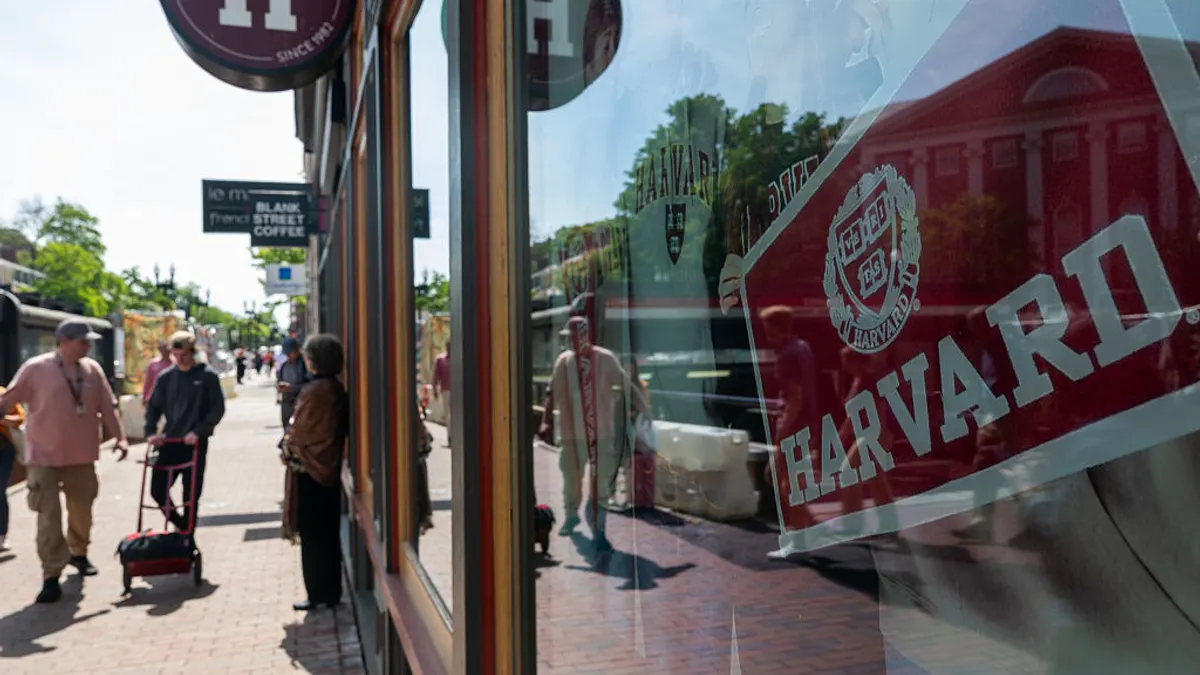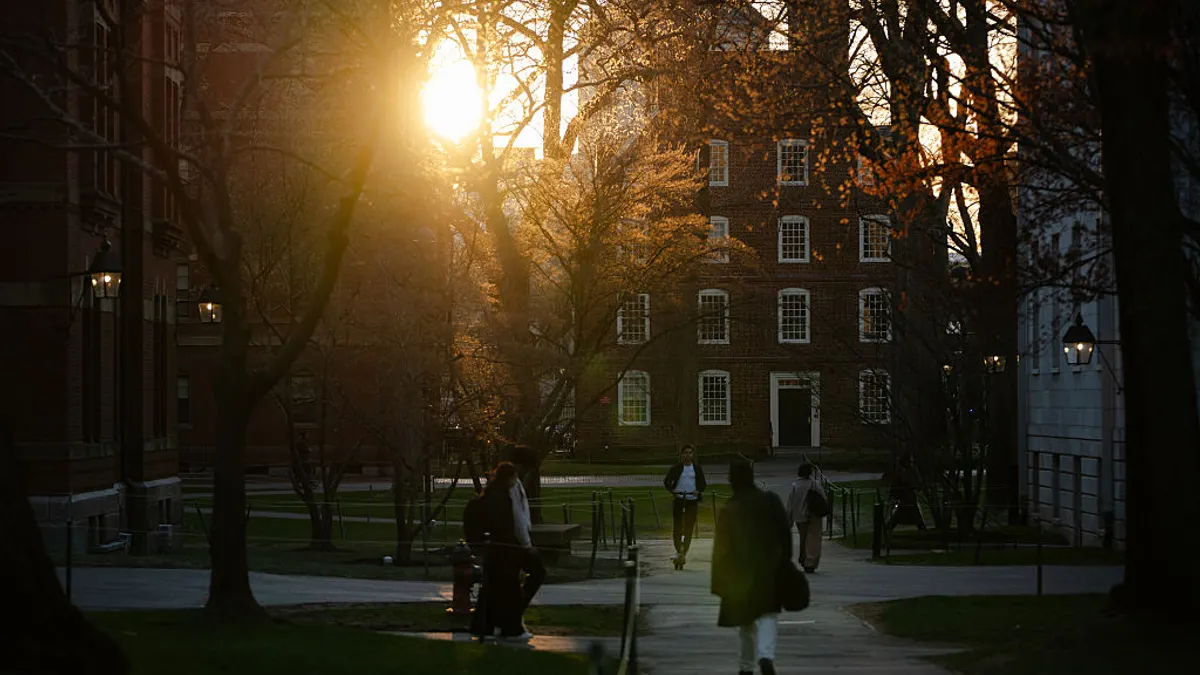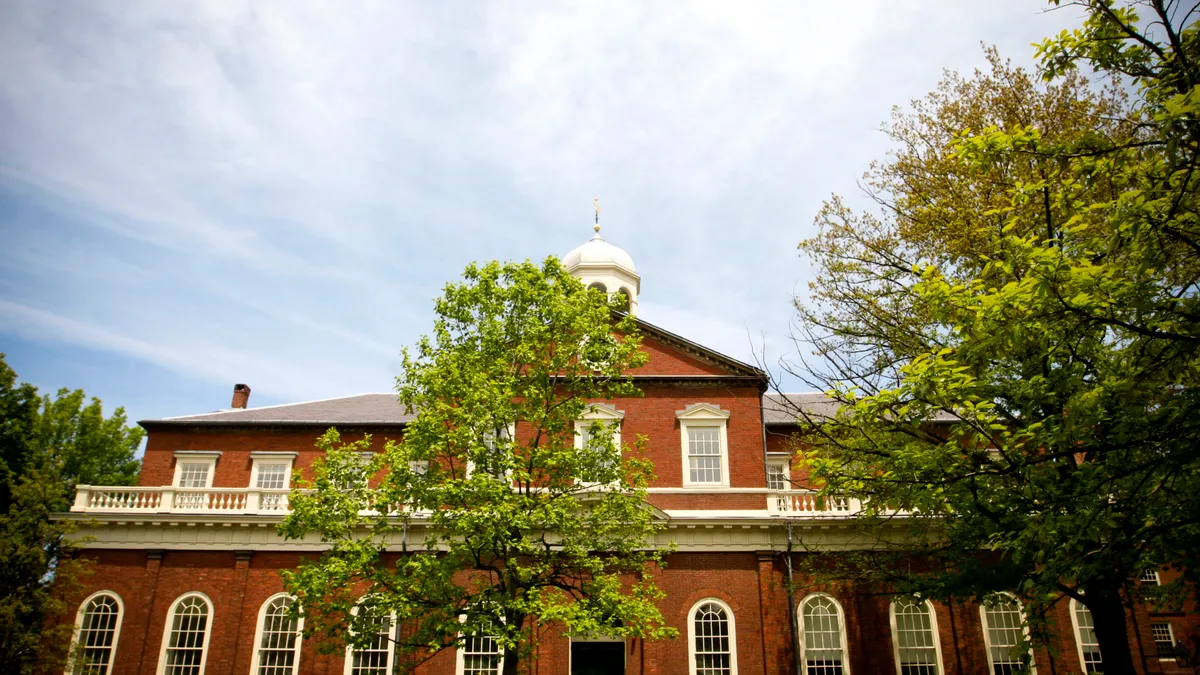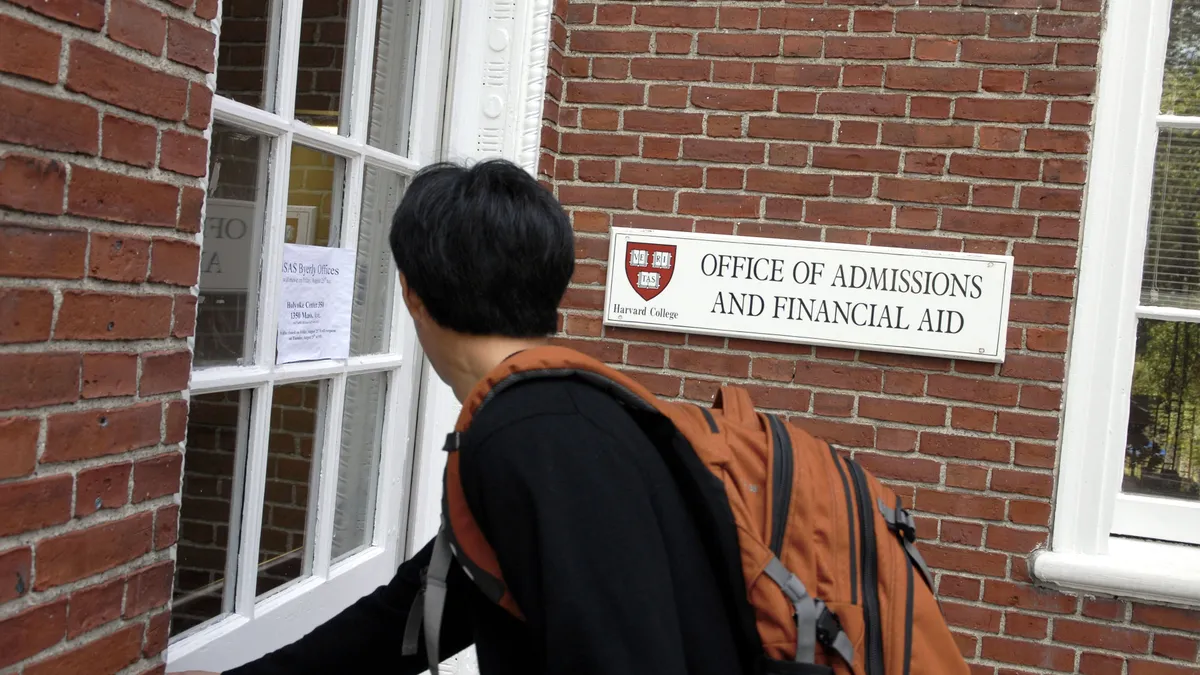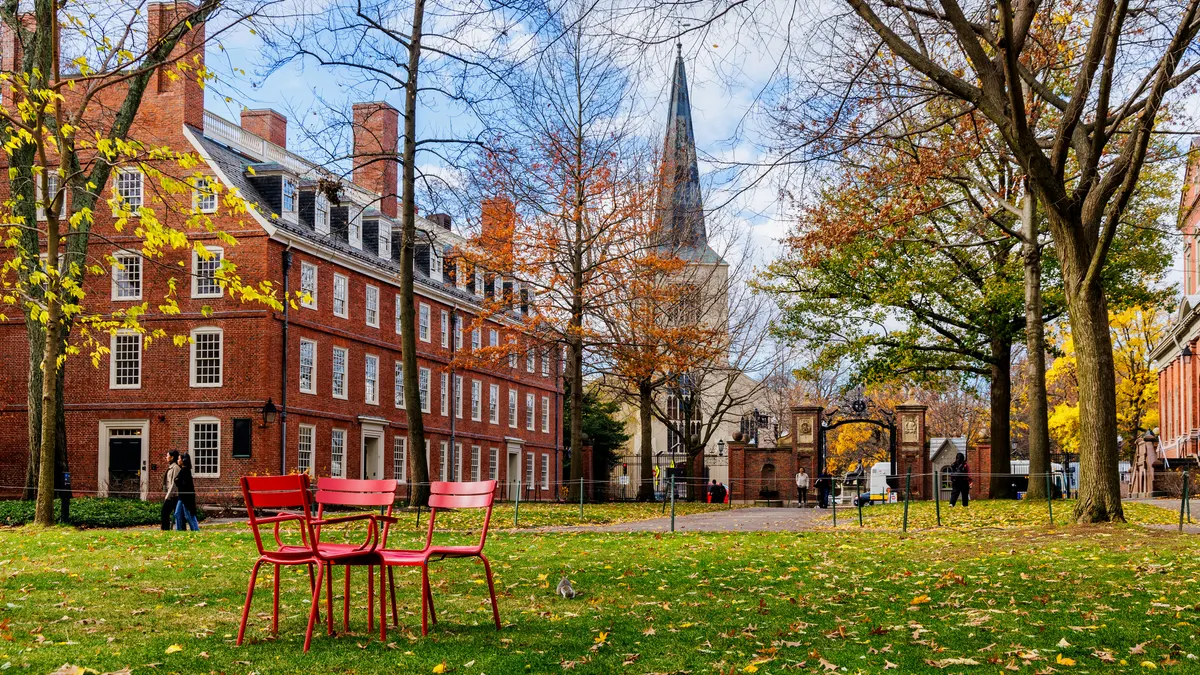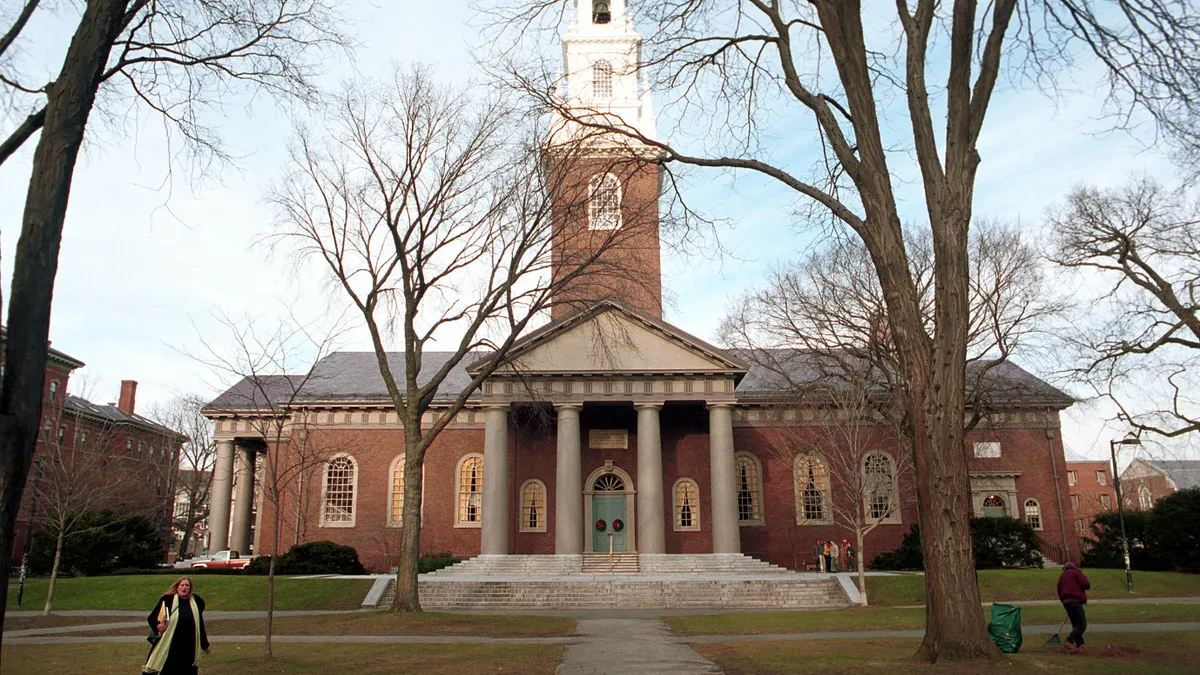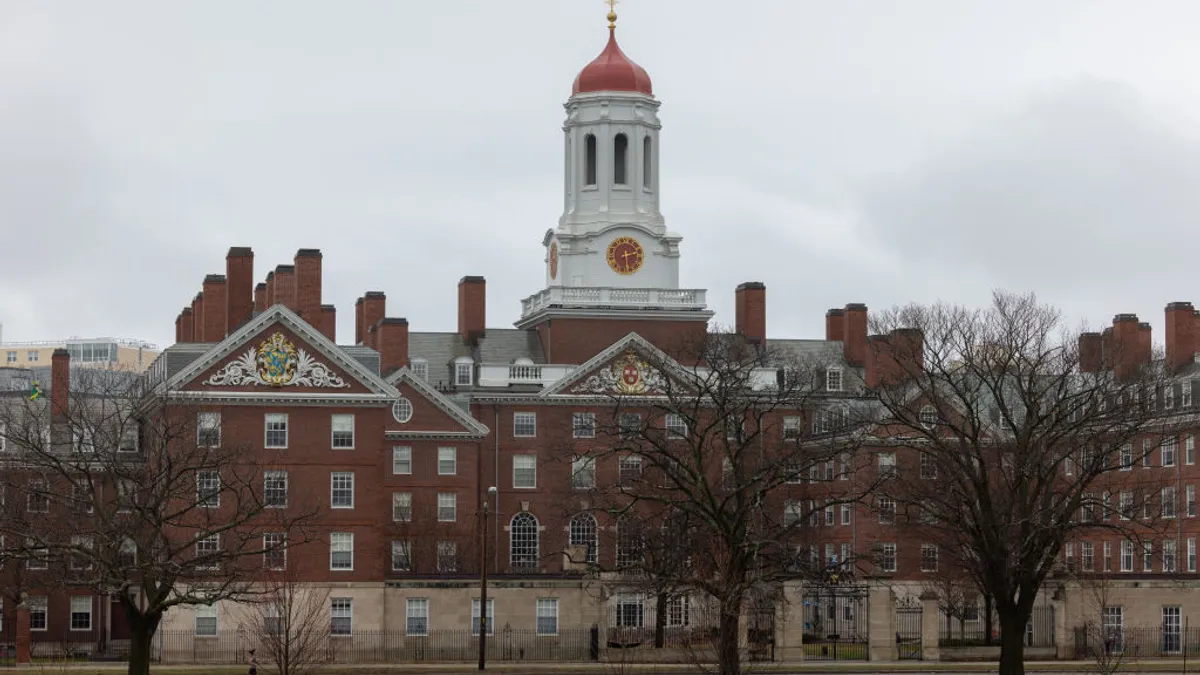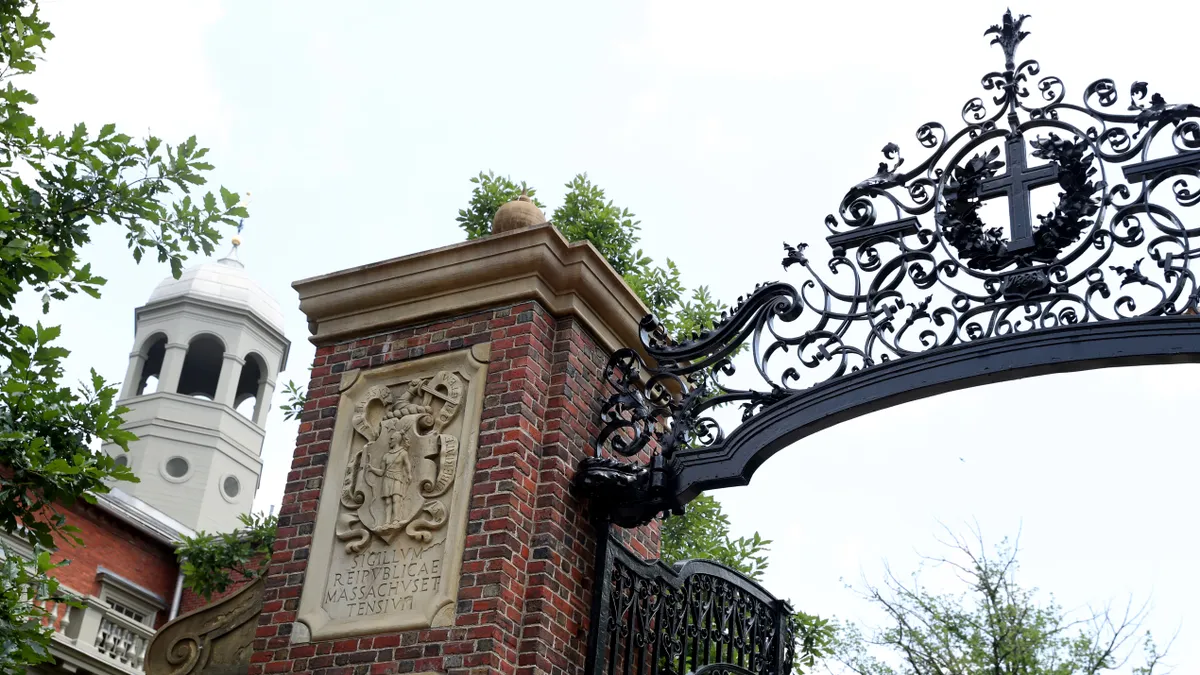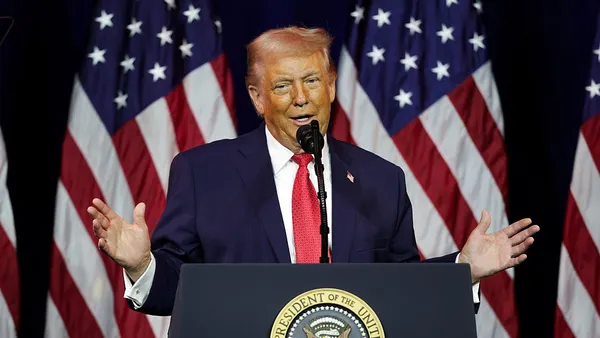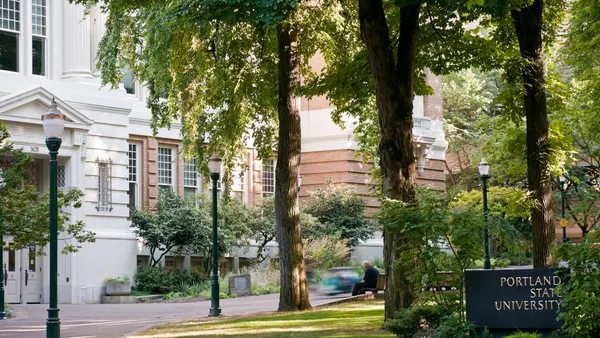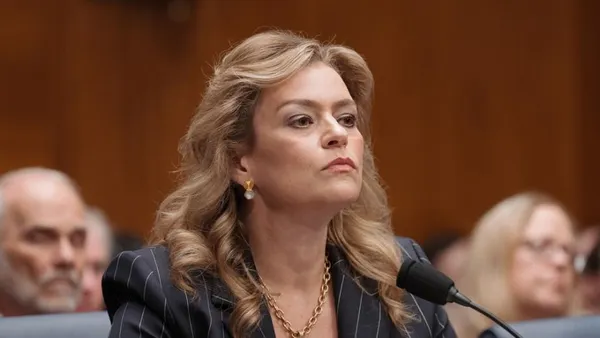Dive Brief:
-
The Trump administration violated Harvard University's First Amendment rights and didn’t follow proper procedures when it froze $2.2 billion of the university's federal funding earlier this year, a federal judge ruled Wednesday.
-
U.S. District Judge Allison Burroughs also ruled that the federal government acted arbitrarily and capriciously when halting the funds. The judicial branch must ensure important research isn't improperly terminated, she wrote, "even if doing so risks the wrath of a government committed to its agenda no matter the cost."
-
Burroughs struck down the Trump administration’s freeze orders and grant termination letters, opening the door for Harvard's funding to be reinstated. But a White House spokesperson said the Trump administration will immediately move to appeal the decision and keep Harvard "ineligible for grants in the future," in apparent defiance of the ruling.
Dive Insight:
In April, the Trump administration froze $2.2 billion in multi-year grants and $60 million in multi-year contracts to Harvard, hours after the university's leadership rebuked its demands for changes to its admissions, hiring, governance and campus policies.
The federal government carried out the freeze under the auspices of the Trump administration's Joint Task Force to Combat Anti-Semitism, which has alleged that the Ivy League institution has not done enough to fight antisemitism on its campus. Subsequent grant termination letters from multiple federal agencies repeated those claims.
But Burroughs questioned that rationale in her decision Wednesday, saying a connection between the federal government’s stated motivations and actions was "wholly lacking."
The evidence does not "reflect that fighting antisemitism was Defendants’ true aim in acting against Harvard," the judge wrote in her 84-page ruling. "Even if it were, combatting antisemitism cannot be accomplished on the back of the First Amendment."
U.S. Education Secretary Linda McMahon also told Harvard in a May 5 letter that it would cut the university off from all future research grants — an order that Burroughs also permanently blocked.
Burroughs also cast doubt on the Trump administration's argument that its revocation of Harvard's funding had nothing to do with university President Alan Garber's refusal to comply with extensive federal ultimatums.
Among several wide-ranging requirements, the Trump administration sought to have Harvard hire a third party to audit programs and departments that it described as fueling “antisemitic harassment” or reflecting “ideological capture.” It also called for “meaningful governance reform” within the university, such as reducing the power of faculty engaged in activism.
The ultimatums and cut-off funds prompted Harvard to sue the federal government in April. It argued that the Trump administration violated its free speech by pulling funding for refusing to comply with viewpoint-based demands and that the government didn’t follow the proper procedures for terminating the grants.
Despite the Trump administration assertions that Harvard's pulled funding was unrelated, Burroughs said its own members undercut its argument.
"Numerous government officials spoke publicly and contemporaneously on these issues, including about their motivations, and those statements are flatly inconsistent with what Defendants now contend," the judge wrote.
Burroughs cited social media posts from President Donald Trump two days after the task force announced the funding freeze.
“Harvard is a JOKE, teaches Hate and Stupidity, and should no longer receive Federal Funds," he wrote on April 16.
That post and others like it demonstrated that Trump's ongoing concern was "untethered from antisemitism," Burroughs said.
But a White House spokesperson doubled down on Wednesday, saying the federal government's actions against the university are intended to "hold Harvard accountable."
"To any fair-minded observer, it is clear that Harvard University failed to protect their students from harassment and allowed discrimination to plague their campus for years," White House Assistant Press Secretary Liz Huston said in an email. Burroughs was "always going to rule in Harvard’s favor, regardless of the facts," she added.
In late April, Harvard published two long-awaited reports about the climate of its Massachusetts campus — one on antisemitism and anti-Israeli bias and another on anti-Muslim, anti-Arab, and anti-Palestinian bias.
The reports found that Jewish, Israeli and Zionist students and employees at Harvard — along with their Muslim, Arab and Palestinian peers — at times felt shunned or harassed while at the university during the 2023-24 academic year.
"Harvard was wrong to tolerate hateful behavior for as long as it did," Burroughs wrote before noting that the university is "currently, even if belatedly, taking steps it needs to take to combat antisemitism and seems willing to do even more if need be."
But the federal government failed to consider this, the judge wrote.
"The agencies considered little, if any, data regarding the antisemitism problem at Harvard" and disregarded "substantial policy and other changes" the university enacted to address the issue, Burroughs said.
They also "failed to weigh the importance of any particular grant or to evaluate whether a particular grant recipient had engaged in antisemitic behavior before cutting off critical research," she said.


